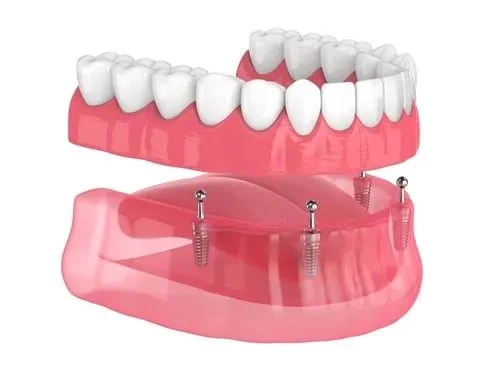The journey to restoring a confident and functional smile through implant dentures is a testament to the advancements in dental technology and precision-based procedures. Precision plays a pivotal role in every step of implant denture placement, from the initial consultation to the final adjustments. Below, we delve into the significance of precision in Implant Dentures in Newport Beach procedures, highlighting how meticulous planning and execution contribute to successful outcomes and patient satisfaction.
Precise Treatment Planning:
Precision begins with thorough treatment planning. Before implant denture placement, a detailed assessment is conducted, including dental imaging, to evaluate the condition of the jawbone and surrounding structures. Precision in treatment planning ensures that the number, size, and placement of implants are carefully determined based on the individual's unique anatomy, providing a solid foundation for the restoration.
3D Imaging Technology:
Modern dentistry benefits from advanced technologies, such as cone-beam computed tomography (CBCT), which provides detailed 3D images of oral structures. This technology allows for precise visualization of the jawbone, nerves, and adjacent teeth, aiding dentists in planning the implant placement with unparalleled accuracy. The use of 3D imaging minimizes the guesswork and enhances the predictability of the procedure.
Computer-Aided Design (CAD) and Computer-Aided Manufacturing (CAM):
Precision is further emphasized through the integration of Computer-Aided Design (CAD) and Computer-Aided Manufacturing (CAM) technologies. CAD/CAM systems enable dentists to digitally plan and design the implant-supported denture before the actual surgery. This digital precision ensures that the final restoration aligns seamlessly with the patient's oral anatomy and aesthetic preferences.
Guided Implant Surgery:
Guided implant surgery takes precision to the next level. Utilizing the information gathered through 3D imaging and digital planning, dentists can employ surgical guides during implant placement. These guides, often created using CAD/CAM technology, direct the precise positioning of implants according to the pre-determined plan. Guided implant surgery enhances accuracy, reduces surgical time, and minimizes the risk of complications.
Minimally Invasive Techniques:
Precision in implant denture placement also involves adopting minimally invasive techniques. These approaches prioritize preserving healthy tissue, reducing trauma to surrounding structures, and promoting faster healing. Minimally invasive procedures contribute to a more comfortable patient experience while maintaining the precision required for successful implant integration.
Implant Selection and Material Precision:
Choosing the right implants is crucial for precision in implant denture placement. Implants come in various sizes and materials, and the selection depends on factors such as bone density and the specific requirements of the case. Precision in implant selection ensures optimal stability, longevity, and compatibility with the patient's oral environment.
Real-Time Guidance During Surgery:
In some cases, real-time guidance is employed during implant surgery. This involves using advanced imaging systems that provide live feedback to the dentist, allowing for adjustments and ensuring the accurate placement of implants. Real-time guidance enhances precision by addressing any unexpected challenges that may arise during the procedure.
Prosthetic Precision:
Precision extends beyond the surgical phase to the design and fabrication of the implant-supported denture. The prosthetic component must align precisely with the implanted fixtures to achieve a harmonious and functional result. CAD/CAM technologies contribute to the precision of the prosthetic phase, ensuring an accurate fit and occlusion.
Precision in Bite Alignment:
Achieving precise bite alignment is essential for the comfort and functionality of implant-supported dentures. Dentists meticulously assess and adjust the bite to ensure proper occlusion, preventing issues such as discomfort, uneven wear, and potential complications. Precision in bite alignment is a key factor in the long-term success of implant dentures.
Post-Placement Adjustments:
Even after the initial placement, precision remains crucial during post-operative adjustments. Dentists carefully evaluate the fit, stability, and aesthetics of the implant-supported denture, making any necessary modifications to achieve optimal results. These adjustments contribute to the patient's overall satisfaction and comfort with their new smile. If you are exploring comprehensive dental implant solutions like All-on-4 dental implants in Newport Beach, trust in the expertise of dental professionals for a transformative and precise restoration of your smile.
Precision in implant denture placement is not merely a technical requirement but a commitment to delivering exceptional care and results. From meticulous treatment planning and advanced imaging technologies to guided surgery and prosthetic precision, every aspect of the process is geared toward achieving the highest level of accuracy. Patients can trust in the precision-based approaches employed by dental professionals, knowing that their journey to a restored smile is guided by expertise, technology, and a dedication to excellence.


